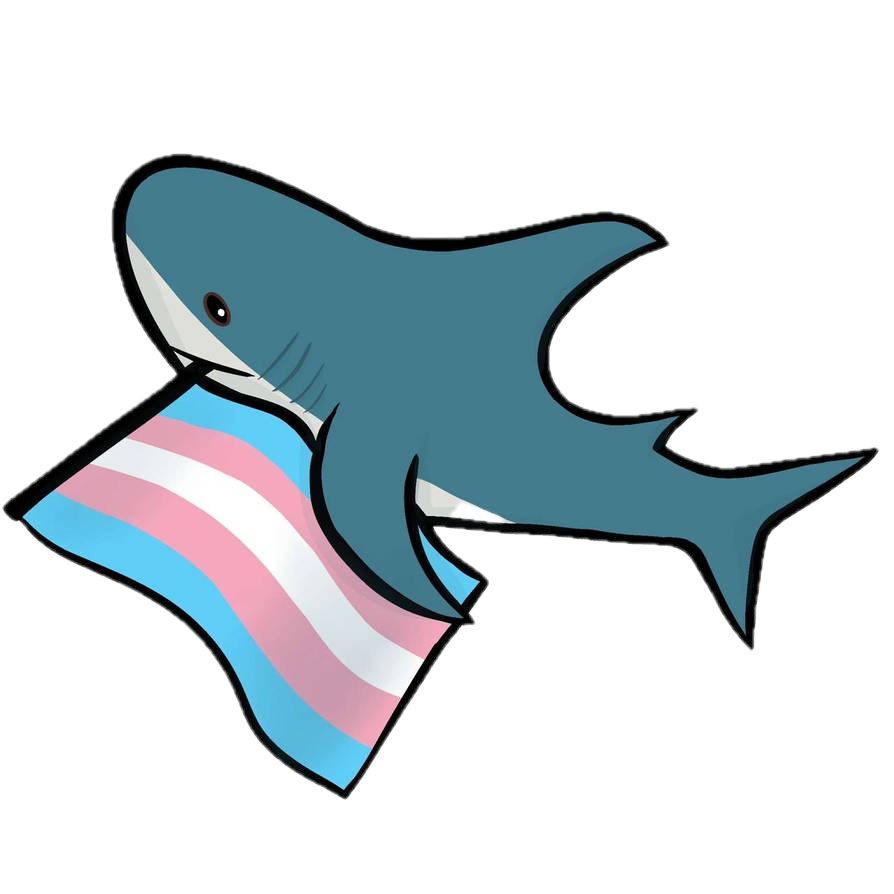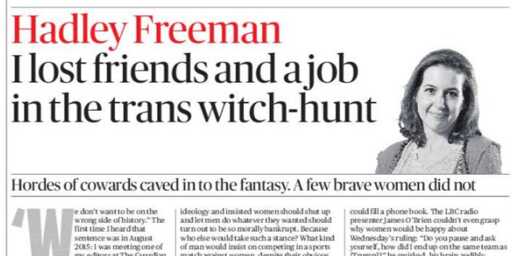confusing headline, I think she just means the anti-trans writer feels vindicated by the court siding with her views and believes the friends she lost over her bigotry now owe it to her to come back and be her friends again?
But Freeman, instead of celebrating her legal victory in full, devoted space to lamenting the friendships she’s lost over her views—and appears to believe, strangely, that this ruling might somehow win them back.
“I’ve been writing about the effects of gender ideology for more than a decade, and in that time I’ve had to leave a job I thought I’d have forever, I’ve been publicly denounced by people I thought were friends, and I’ve been blacklisted from more events than I can count,” complains Freeman—who also takes time to denounce the so-called “abuse” she claims to have received from critics, including Doctor Who actor David Tennant, whose supposed offense is being the supportive parent of a non-binary child.
But I don’t read her article that way - she bemoans her victimization for her anti-trans views, but in the end she doesn’t imply that she will win back her friends, just that she was always right, feels vindicated, and that despite losing friends, she is happy she made other friends because of her anti-trans views, from her article:
So now it’s April 2025, and what we knew 10, 20, 1,000 years ago has been confirmed: a woman is a woman. What a terrible waste of time, money and energy this has all been. On the other hand, how clarifying: now we know who believes in reality and who doesn’t. Who is brave and who isn’t. Who thinks men can magically become women and children can be born in the wrong body, and who doesn’t.
Maybe every generation has its witch-hunt, its Joe McCarthy era, when innocent people are denounced for unimaginably bizarre reasons, and we’ve now lived through ours. I’ve lost friends but I’ve gained so many funnier, smarter ones, women — gay and straight — I never would have met were it not for all the men screaming that trans women are women. That’s how I explain the past decade to myself: this was a test. Some passed. A lot more failed.
Headline aside, I think Erin Reed gets this right:
Ultimately, Freeman’s column isn’t pitiful because it rubs salt in the wound—it’s pitiful because it lays bare the true aim of the anti-trans movement. This was never about policy or bathrooms or youth sports. It’s about a cohort of people who feel culture shifting beneath their feet, who were raised in a world where casual cruelty toward transgender people was normalized, and who now find themselves resentful that society has moved on. Rather than reflect or grow, they double down, demanding that their revulsion be seen as virtue—that their discomfort be not only accepted but celebrated. Freeman’s yearning for social validation, cloaked in the language of righteous indignation, reveals the movement’s hollow core. The title of her piece says it all: this isn’t about the law, it’s about the isolation that comes from being wrong. And no court decision—no matter how cruel—will win back the friendships lost to hate, or rescue those who chose the wrong side of history from the consequences of that choice.



